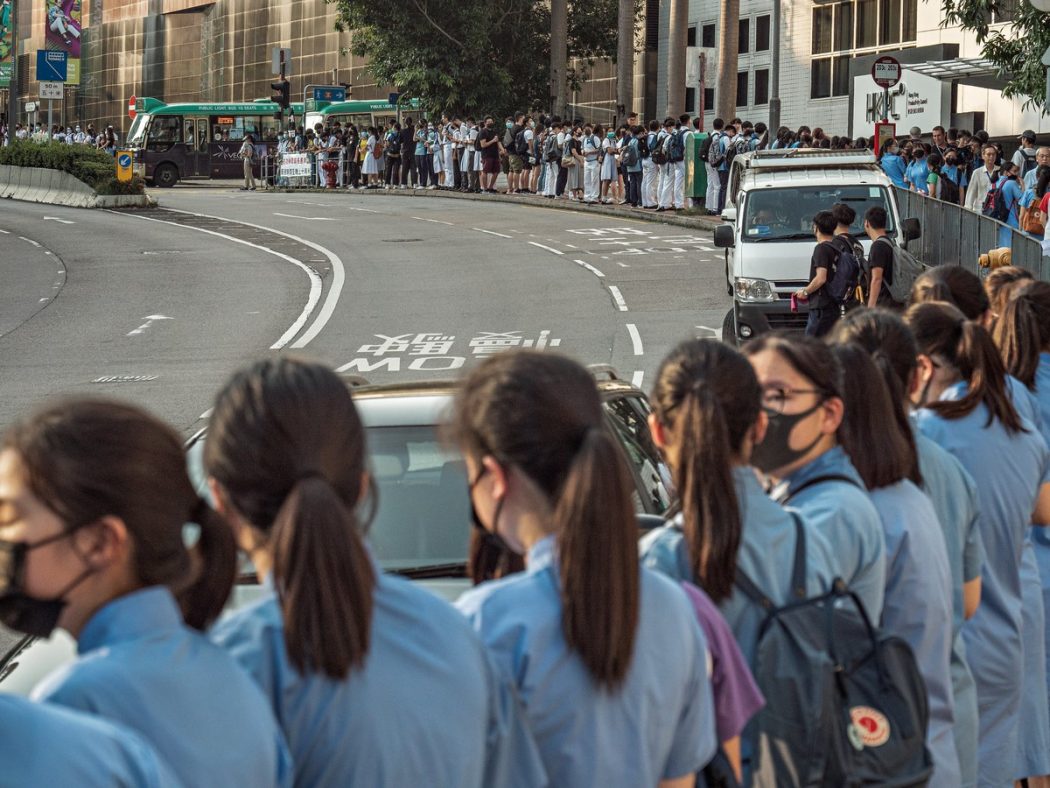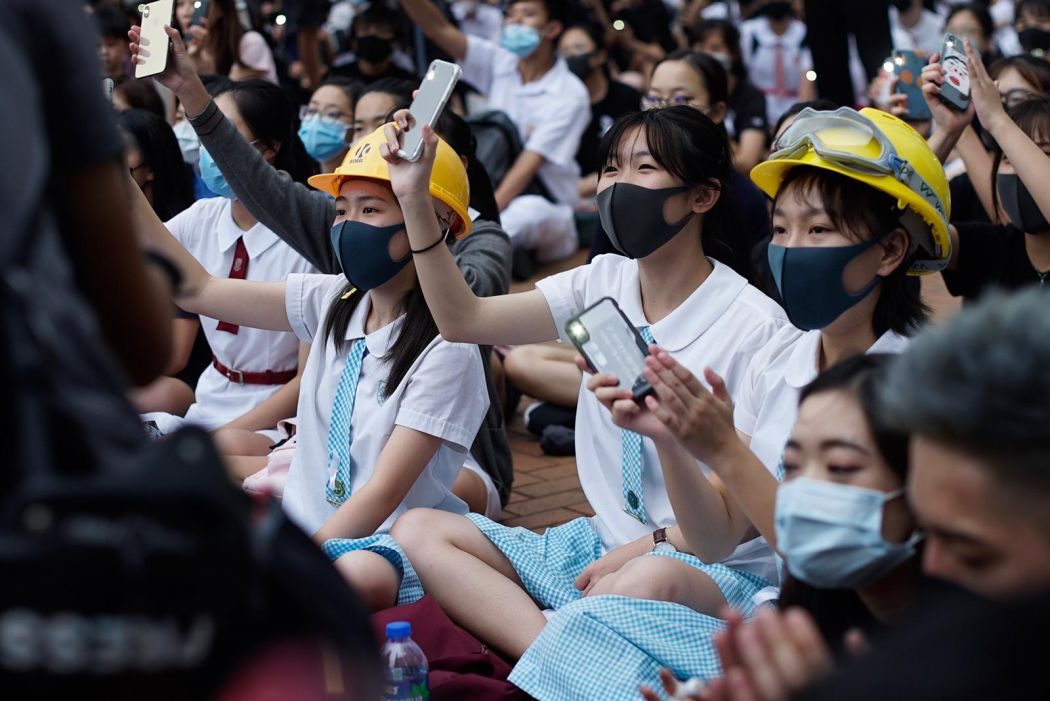A human chain demonstration organised by secondary students in Tseung Kwan O has been called off, after police wrote to school principals warning that the event could be seen as an unauthorised assembly.
The Tseung Kwan O Student Front (TKOSF) – one of the event organisers – announced on Friday morning that a joint school human chain demonstration – set to take place hours later outside the Hong Kong Velodrome – would be cancelled.

The group cited a letter the Tseung Kwan O Police District commander sent to school principals in the area on Tuesday. The police said the student-led event could be in breach of the Public Order Ordinance. They also warned that participants could be seen as breaching coronavirus gathering restrictions, adding that “any group gathering could increase the risk of spreading the virus.”
The government relaxed its social distancing measures on Friday, allowing up to 50 people to gather in public.
“[We] urge students not to take part in any unauthorised assembly and banned group gathering. The police district does not tolerate any illegal, violent behaviour, [the force] will resolutely enforce the law based on the situation at the scene, including making arrests,” the letter read.
The TKOSF apologised for scrapping the event, saying the decision was made out of concerns for the personal safety of students.

“Police have made arbitrary arrests in recent years, and we can all see the police brutality. At the same time, there was no precedent for police to issue warning letters to schools in previous human chain events. We believe police may conduct a mass arrest on June 19,” the group wrote.
HKFP has reached out to police for comment.
The planned demonstration was originally in opposition to what the organisers saw as “exploitation and trampling” of academic freedom and freedom of speech by the government and the Education Bureau.

They accused the authorities as spreading “white terror” on campus and said the newly passed National Anthem Law and the looming national security legislation were attempts to “forcefully indoctrinate” patriotism to Hong Kong’s next generation.
The organisers also voiced support for a class boycott referendum on Saturday, to decide whether strike actions would take place to protest against Beijing’s resolution to implement laws to punish secession, subversion, terrorism and foreign interference in the city.
‘Compromising harmony’ on campus
Last Wednesday, Secretary for Education Kevin Yeung wrote to principals of all primary and secondary schools, warning that students should not participate in class boycotts, chant slogans, form human chains or sing songs that “contain political message.” Protest anthem Glory to Hong Kong was a “propaganda song” that should not be sung at schools, Yeung said.

The education minister said such activities would turn schools into venues for expressing political demands, thus “compromising harmony” on campuses. They would also “stir up” other people’s emotions and ultimately “undermine” students’ learning progress, he said.
“The names of schools may even be ‘hijacked’ by such activities, misleading people into believing that political thoughts have originated from the schools or personnel therein,” Yeung claimed, adding that teachers should “immediately counsel” students to stop, or take disciplinary actions.
